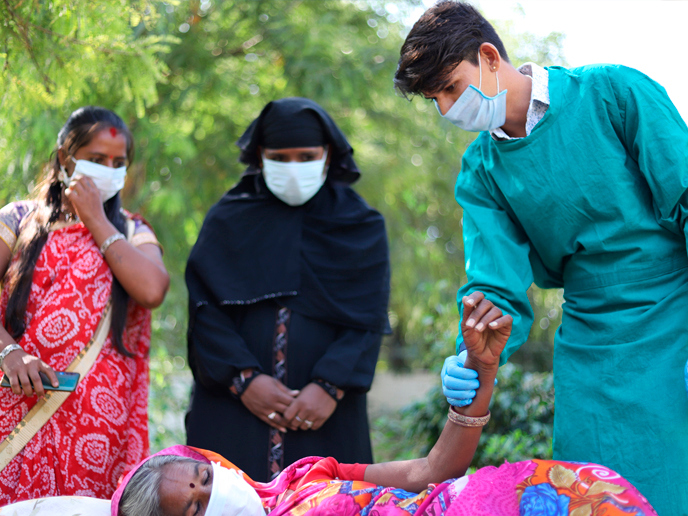Revealing global inequalities in female cancers
Every year, around 2.5 million women are diagnosed with either breast, ovarian or cervical cancers. These cancers are responsible for around 900 000 deaths every year. But the picture is far from uniform around the world. Major differences in treatment options and survival exist from country to country, with patients in the developing world facing far higher mortality rates. These patterns have been uncovered by CONCORD, a global surveillance programme to monitor trends in cancer survival, run by the Cancer Survival Group at the London School of Hygiene & Tropical Medicine(opens in new window) (LSHTM) in the United Kingdom. The VENUSCANCER project, which was funded by the European Research Council(opens in new window), is working to unpick the reasons underlying global inequalities in cancer care and survival, to better prevent avoidable deaths. “We believe the first worldwide comparison of patterns of care for breast, cervical and ovarian cancers will help to explain the reasons for most of the persistent international inequalities in survival for these cancers in women,” explains Claudia Allemani, professor of Global Public Health at LSHTM and VENUSCANCER principal investigator. “The results will offer guidelines to policymakers on future directions for cancer control strategies.”
A global view of cancer mortality
The VENUSCANCER team are analysing existing data in the CONCORD database to estimate the number of avoidable deaths from each type of cancer. At the same time, participating cancer registries are submitting new high-resolution data including details about cancer diagnosis, treatment and socio-economic status. VENUSCANCER provided financial support for 10 registries in low-income and middle-income countries to aid with data collection. “This investment has greatly increased the quantity and quality of the detailed data required,” says Allemani. Through three working group meetings, the project developed a study protocol and specification for data collection. This was finalised in November 2019, and the team issued a call for data the following month. Then the COVID-19 pandemic hit, causing huge and prolonged disruption to data collection, staffing, data submission and quality control. Field trips were impossible between 2020 and 2022. Yet despite the delays, new data is arriving. By August 2023, the project had received 190 data sets from 70 cancer registries in 32 countries, including information on 126 505 women diagnosed between 2015 and 2018. Several further data sets are expected by mid October 2023. “During an unprecedented pandemic, we consider it a major achievement to have completed the protocol for data collection after analysis of over 400 questionnaires, managed data collection, as well as designed and finalised several of the planned analyses,” adds Allemani.
Promising early results
The team have carried out preliminary analyses on diagnoses and treatments, with striking results. Among 94 656 women diagnosed with breast cancer, the proportion of tumours classified as early stage ranged from 12 % in Romania to 50 % in the United States. Breast-conserving surgery and radiotherapy was offered to over 70 % of women with early breast cancer in Belgium and Norway, but to only 19 % in Thailand. Node-positive tumours ranged from 22 % in the United States to 34 % in Ecuador and Romania; chemotherapy treatment was received by 28 % of women in Norway, ranging up to 88 % in Thailand. The team expects most results to be published by mid 2024. “VENUSCANCER is still far from over,” says Allemani. “I hope it will become a prototype for similar high-resolution studies to explain inequalities in survival from other cancers.”







